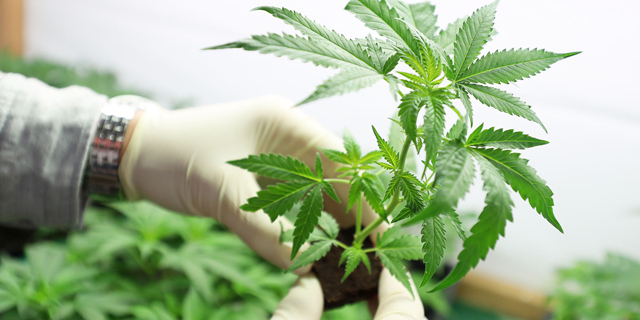
On Target
Cannabis May Be Stalled, but Cannabis Tech Is Racing Forward
2019 may have temporarily halted the growth of the global cannabis sector, but the shockwave impacted public companies more than the technology itself
Last year saw the cannabis bubble burst, but the shockwave impacted public companies more than the technology itself, according to Keren Shmueli, partner at Israeli law firm Pearl Cohen Zedek Latzer Baratz, who represents investors and companies in the cannabis sector. “Cannabis tech is an aggregation of technologies that span the entire value chain, and the sector is gradually creating change. Two months ago, Canada removed various prohibitions that had to do with cannabis in foodstuff and beverages, boosting the sector’s market potential.” Israeli academic institutes such as the Technion Israel Institute of Technology and the Agricultural Research Organization, Volcani Center already have researchers in the domain, she said, but everyone is waiting for the real game-changer—sweeping legalization in the U.S.
In other words, according to Shmueli, though the market is currently somewhat on hold, technological development continues, and companies are waiting for a regulatory green light to offer the general public new and surprising ways to enjoy and benefit from this much-debated product. Most startups in the sector focus on various devices intended to improve user experience and consumption, such as vaporizers. Others aim to develop tools to make transportation and quality control more efficient, while some even stray into agtech and retailtech with quick-growth technologies and online marketplaces. Cannabistech has yet to score its first unicorn, but it has produced some prominent players to date. Among them is San Francisco-headquartered cannabis marketplace and delivery service Eaze Technologies Inc., valued at $500 million at its peak, currently the largest cannabis selling platform in the U.S. Another is Green Bits Inc., a U.S. retail management and point-of-sale platform. Like other tech sectors, Israeli companies make their presence known here as well. Israel-based Leaf, incorporated as Corsica Innovations Inc., develops an automated cannabis growing appliance for home users. This futuristic mini-fridge-shaped device saw repeated delays in manufacturing and supply, and also comes with a price tag of $3,000. Today, the company has expanded into the general agtech sector and markets its device to enthusiastic home gardeners of kale, cherry tomatoes, and strawberries. Syqe Medical Ltd. develops a pocket-sized metered-dose inhaler designed for the precise delivery of cannabis and other medicinal plant molecules. The inhaler hit the market in 2019 after eight years of development and $83 million in funding. Another Israeli player is Kassi Labs, which develops an eponymous smart device that functions as a grinder, a storage device, and a humidity and temperature monitor, and also offers a USB port for charging your mobile phone or vaporizer.